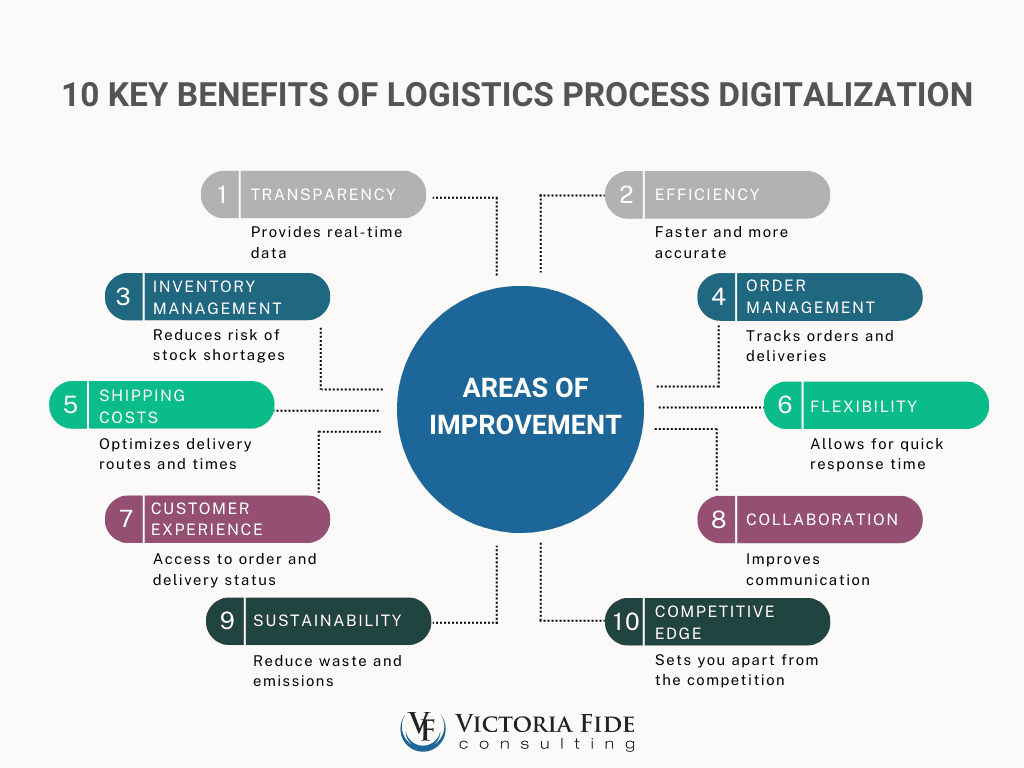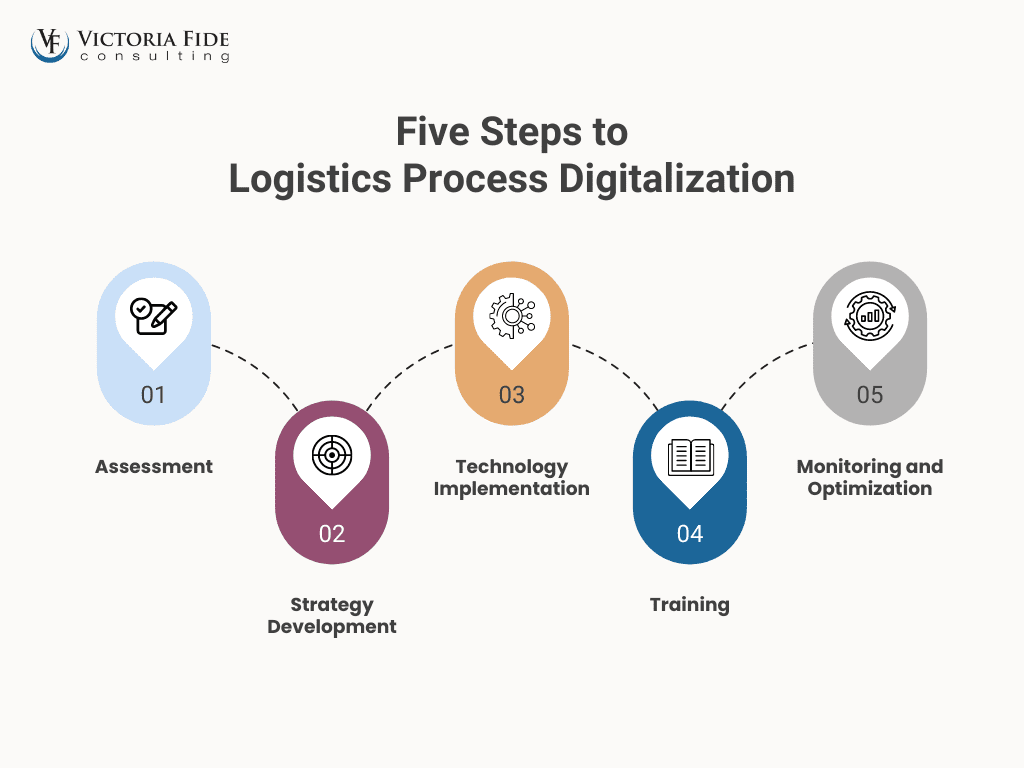
Table of Contents
What is Logistics Process Digitalization?
Logistics process digitalization refers to using digital technologies to automate and optimize various elements of supply chain management and logistics operations. This involves the use of software and digital platforms to streamline processes such as order management, inventory management, transportation management, and warehouse management.
The implementation of logistics process digitalization is essential for companies of all sizes as it enables organizations to achieve greater efficiency, accuracy, and cost-effectiveness in their operations. In today’s fast-paced and highly competitive business environment, the digitalization of logistics processes has become vital to supply chain management.
What Are the Benefits?

Here are 10 key benefits of logistics process digitalization:
- Improved visibility and transparency: Digital technologies give companies real-time access to data and information about their logistics operations, including inventory levels, delivery times, and transportation costs. This improved visibility and transparency help organizations make informed decisions about their supply chain operations.
- Increased efficiency: By automating manual processes, digitalizing logistics processes helps organizations save time and reduce errors, leading to increased efficiency in their operations.
- Better inventory management: Digital platforms enable real-time information about inventory levels, allowing companies to make informed decisions about stock replenishment and minimize the risk of stock shortages.
- Improved order management: Digital technologies make it easier for organizations to manage orders and deliveries, including tracking orders in real-time and handling returns and exchanges.
- Reduced transportation costs: Digitalization of transportation management processes can help organizations optimize their delivery routes and reduce transportation costs.
- Increased flexibility: Digital technologies make it easier for organizations to respond to changes in demand and supply, allowing them to adapt their operations more quickly and effectively to meet changing market conditions.
- Improved customer service: By providing real-time information about order status and delivery times, digitalization of logistics processes can help organizations to improve customer service and increase customer satisfaction.
- Better collaboration: Digital technologies enable organizations to collaborate more effectively with suppliers, manufacturers, distributors, and retailers, helping to improve communication and coordination across the supply chain.
- Enhanced sustainability: By optimizing their logistics operations, organizations can reduce waste, minimize emissions, and improve energy efficiency, leading to a more sustainable supply chain.
- Increased competitiveness: By improving efficiency, reducing costs, and increasing customer satisfaction, the digitalization of logistics processes can help organizations to increase their competitiveness in the market.
How to Implement Logistics Process Digitalization
The implementation of logistics process digitalization typically involves several key steps:
- Assessment
The first step in the implementation process is to assess the current state of the organization’s logistics operations and to identify areas that could benefit from digitalization.
- Strategy Development
Based on the assessment, organizations must develop a strategy for digitizing their logistics operations, including identifying which processes to automate, what technologies to use, and what resources are required.
- Technology Implementation
The next step is implementing the technology, including selecting and installing software and platforms to automate logistics processes.
- Training
Organizations need to provide training to their employees on how to use the new technology and how to optimize its use in their operations.
- Monitoring and optimization
The final step is to monitor and optimize the use of the technology, including tracking performance metrics and making any necessary adjustments to improve efficiency and effectiveness.

In summary, digitalizing your logistics processes can help in numerous ways, from increasing transparency and efficiency to providing a better customer experience and delivery schedules. The reduction of shipping costs and improved inventory management can give organizations the competitive edge they need in today’s fast-paced markets. Sustainability is also an important factor for organizations to consider when embarking on this transformation.
When making the decision to digitize supply chain management processes and take the leap into a digital transformation initiative, it’s essential to work with a trusted advisor who can help your organization create a successful DX strategy. Need help leveraging digitalization for your business? Talk to our DX experts – we’re committed to helping you accelerate growth and achieve tangible results for your company!
About the Author
Shana Gibbons is the Warehousing and Supply Chain Business Process Consultant at Victoria Fide Consulting. She has over 16 years of experience working in the Supply Chain and Warehousing space, and she is deeply passionate about building relationships with her clients and teams in order to help them navigate through their Warehouse and Supply Chain ups and downs.
